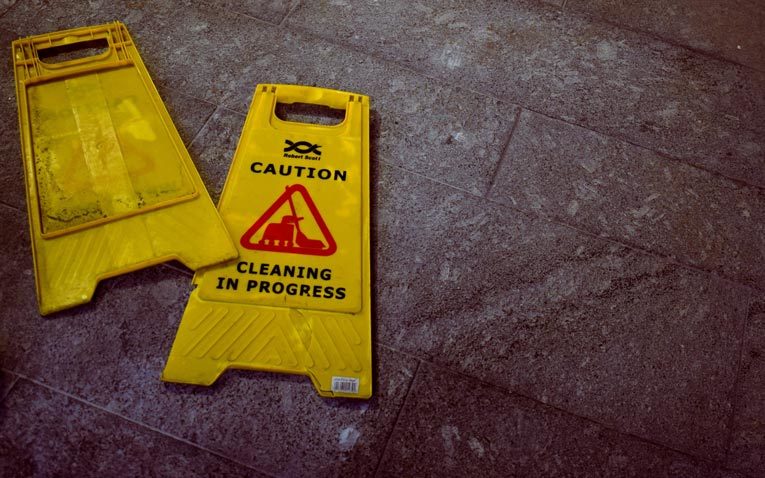What type of business insurance do I need?
29 Apr 2019

No matter what line of work you’re in, you are likely to need business insurance. Buying insurance for any small business can be a perplexing process, so how do you know which insurance policies are right for your business?
The type of business insurance you need will depend on your business; both the type of work that you do and the risks or physical assets you might need to cover. Business insurance can be tailored to your needs and will cover your business, in case anything goes wrong, such as covering the cost of compensation claims or legal fees or paying for damage to property. Having business protection you can trust and rely on is critical to your own peace of mind and the future of your company.
This article covers
What are the different types of business insurance?
When it comes to deciding what type of insurance you may need, think about the risks involved in your business: Could a member of the public be injured by your business and make a claim? Do you have staff who could claim that their work has caused injury or illness? Do you have valuable stock, buildings, contents or equipment to insure?
There are three main types of business insurance:
- Public liability insurance: This insurance provides cover against claims made by members of the public who have been injured or had their property damaged by your business. It can cover the compensation, as well as any legal costs. This is one of the most popular types of business insurance and whilst it is not a legal requirement, it is widely considered a must-have for any small business that interacts with the general public.
- Employee liability insurance: This insurance covers you for any claims made against you by your staff for injury or illness that they believe has resulted from their work, or workplace. This type of insurance is almost always a legal requirement if you employ someone.
- Professional indemnity insurance: This generally covers legal liability for claims arising out of an actual or alleged breach of professional duty. It is not compulsory under the law, but the rules of some professional bodies and regulators means it is compulsory for certain professions.
There are also other common types of business insurance, including: Product liability insurance; business buildings insurance; business contents insurance; stock insurance; personal accident insurance; business interruption insurance; and business legal protection insurance. When thinking about the type of insurance you might need consider what your business needs now, as well as the insurance you might need in the future.
What cover does public liability insurance provide?
Public liability is an important cover for all businesses who come into contact with the general public. It covers the cost of legal action and compensation claims made against your business if someone is injured or their property suffers damage whilst at your business premises or whilst your business is working at their office, home or business property. Anyone can make a claim against your business if they believe you, your employees or your business have caused them harm or damaged their property. Examples of claims that might be made could include: A member of the public suffering an injury from debris falling from your scaffolding; a car valeter who scratches a car they are cleaning; or a plumber who causes a leak and water damage in a property they are working on.
There are certain circumstances that public liability insurance won’t provide you with the cover you need. This includes accidents that happen to you, accidents that effect your employees and their belongings or damage to your own property. These should be covered by other business insurance. The amount of cover you should take depends on the level of risk that your business undertakes, to ensure your business and the interests of your clients and the public are protected. There may be minimum accepted standards for your industry or your clients. For example, if you are working on local authority or government contracts, it is common to need to have cover of between £5million and £10million.
What cover does employee liability insurance provide?
If you have employees, contractors, casual workers or temporary employees, by law you are required to have employee liability insurance, so if employees become ill or suffer an injury as a result of working for you, you are covered. The law requires a cover limit of at least £5million and you can be fined £2500 for each day that you do not have this insurance in place. There are a few exemptions, such as if you only employ close family members, unpaid student workers or volunteers but always check with your provider. Examples of claims that could be made are: If cleaning or maintenance staff injure themselves whilst doing their job; an employee who trips on a wet floor and breaks their leg; or an employee who suffers an injury after working long hours on a computer.
You may not be able to claim against your insurance in certain situations, such as: If you do not notify your insurer within a certain time limit; the act that caused the injury was deliberate; or the illness or injury happened offshore.
What cover does professional indemnity insurance provide?
This insurance is designed to cover the cost of any claims made against your company for losses a client suffers because of your work or advice. It covers a wide range of scenarios including:
- Professional negligence (i.e. making a mistake or giving the wrong advice)
- Unintentional breach of copyright or confidentiality
- Defamation or libel
- Loss of documents or data
- Loss of goods or money for which you are responsible
Examples of claims that might be made include: An architect who is sued by a client to rectify an extension built from a flawed design; an IT consultancy whose web partner has been hacked leaving their clients’ websites offline for a day; or an accountant who loses or misplaces confidential documents.
Professional indemnity insurance is now compulsory for some professions including solicitors, accountants, financial advisors, architects and some healthcare professionals. It also may be required by some client contracts. When you are thinking about professional indemnity insurance, check any client’s contracts, along with the guidelines from your regulator or professional body. Your business is unique, so you will need to choose a provider who can offer you the right amount of cover.
Where can I find business insurance?
Businesses can purchase cover direct from an insurer. Two of the biggest business insurers in the UK are Hiscox and AXA. These companies, like many others, provide online quotes. However, businesses may be able to save money by going through a broker. Simply Business is one of the UK’s biggest business insurance brokers and offers businesses the chance to compare quotes from a range of insurers.


